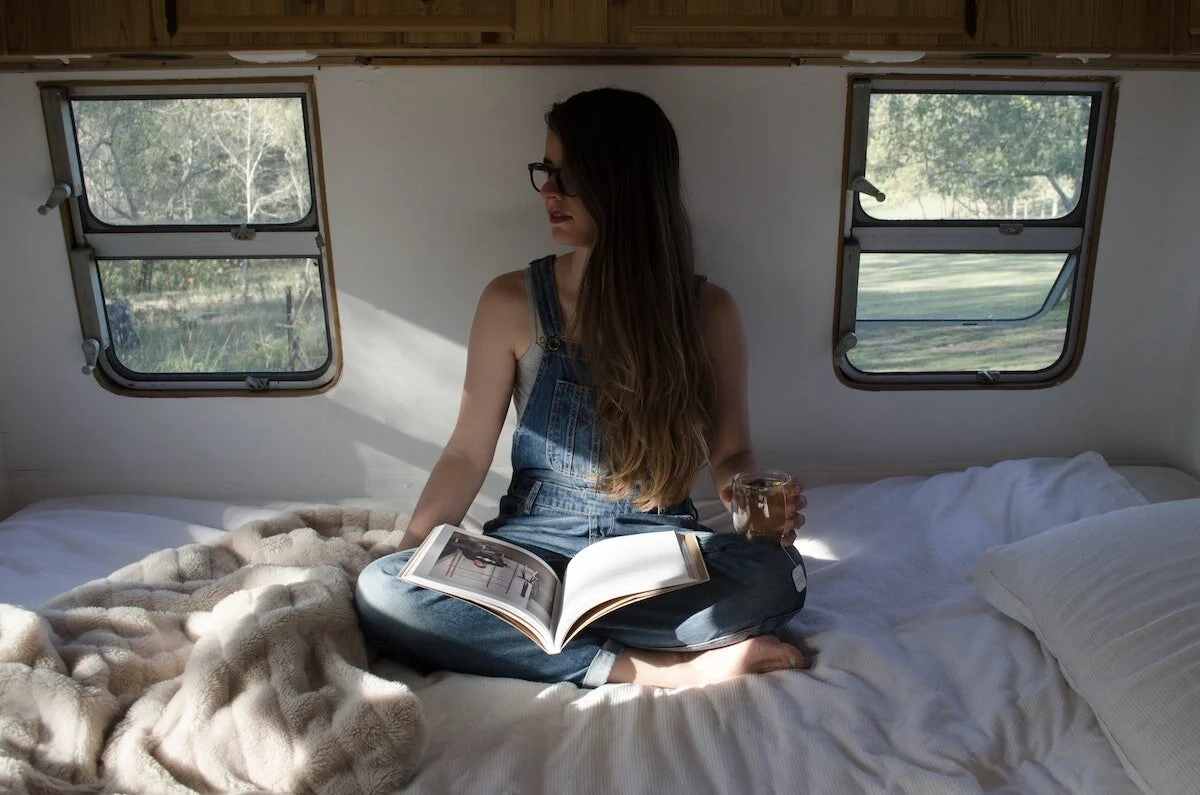Three Ways International Living Helped Me Strive for Less
“Paradoxically, in this limited area, space has been forced upon me. The geographical boundaries, the physical limitations, the restrictions on communication, have enforced a natural selectivity.”
Anne Morrow Lindbergh
I am not here to tell you that less is more, because less is actually less.
Less—it is a simple word not used much in Western culture. I don’t hear many people proclaiming they want less stuff, less activities, less house, and less friends. I definitely have never heard someone say, “I want to be less.” In Pope Francis’s documentary, A Man of His Word, he said, “We can all get by with less.” That is a novel notion for those of us that come from consumer culture. What if we all started striving to have less, instead of running about striving for more of everything?
Less means something different for each of us. Striving for less (not just less stuff) is about making room for the things that matter more. For my family, it has been a slow progression toward valuing “less.” Our journey started very practically and with little intentionality. Living overseas forced me into a life of less, but as a result it has shown me the value of pursuing less.
Here are the three ways living abroad has helped me to strive for less:
Less was forced on us by where we were living. I learned to go without, or use what we already had, just as the community around us was doing. Living overseas in Ethiopia we had no access to Amazon Prime’s two-day delivery, or really, any imported goods. Somehow, we still accumulated a lot of items in our three years in Ethiopia. Bringing me to point number two.
Less came through another relocation. Again, this move toward less was practical and not intentional. We were leaving Ethiopia and we couldn’t take everything with us. I had to get a 5000 sq. ft house down to eight bags or pay $150 for each extra bag. The financial motivation was helpful in sorting through and pairing down all of our things. Still, these were things that signaled memories, hopes, plans, and made up our lives. Quilts I made that had kept us warm during those first years of marriage, glasses we toasted with at our wedding wedding that we used to celebrate when we found out we were pregnant, candlesticks that lit up many a power outage, and my favorite pan that I learned to make crepes in all came under careful inspection. This was the stuff we loved and also the stuff that was keeping us from what was next. I tried to make the process as non-emotional as possible by asking myself, “If I get rid of this, will I rebuy this in America?” If the answer was no, then it was a definite sell or give away. I sold and gave away our whole house using this process—item by item, memory by memory.
Less came in a smaller space. We landed in America with our eight bags and moved into 280 sq. ft of an old bus we converted into a tiny home. All the hard work of sorting and selling paid off. Living in the bus with our eight bags meant we had less stuff to organize, less things to clean, and the flexibility to go whenever we felt called.
This was the beginning of our journey into “less,” which made us start to think of other ways we could not only “strive for less.” We recalibrated our values toward less—less stress, less house, less schedule, less ambition, less toys. It allowed us to carve out more time together as a family, more time outdoors, and to step more intentionally toward the future. We are now living in Uganda in a 700 sq. ft house, where I am continuing to learn the value of less. As I am sure many of you living overseas have experienced, being removed from your passport culture is a great place to build new habits and values.
How can you strive for less today?


